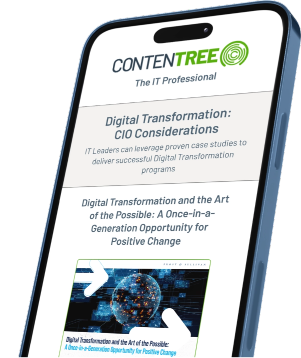
Sales teams win deals when they're learning faster. This is where conversational intelligence comes in. Teams need software that records, transcribers, and analyzes sales conversations to surface insights for coaching, forecasting, and execution.
What Conversational Intelligence Does for Sales
At its core, conversation intelligence software captures calls, transcribes them, and applies AI to flag moments that matter. This includes topics, sentiment, talk ratios, and action items. These are done so managers can use these to coach at scale while representatives can course-correct faster.
Conversational Intelligence Tools
Gong.ai
This platform is considered as a market leader by sales professionals. The product records calls, provides transcripts, and can even generate follow-up emails, with reviewers highlighting ease of use and tight integrations.
Common knocks include occasional summary or playback glitches and UI complexity for new users. If you need broad adoption across managers and AEs, the coaching workflows and searchable call library make a strong case.
Gong.ai is perfect for sales organizations that want deep deal visibility and coaching in one place.
- Pros: Pipeline inspection paired with call-level evidence, scalable coaching scorecards, and searchable snippets for onboarding and deal reviews.
- Cons: If you expect perfect AI summaries out of the box or have limited change-management bandwidth, budget time to tune prompts, views, and permissions.
Chorus by ZoomInfo
Chorus supports a wide set of conversation-intelligence features. This includes call recording and analysis, speech-to-text, coaching cards, scorecards, dashboards, leaderboards, and notifications. Managers also use this tool to standardize call reviews and scale coaching.
- Pros: Pairing call insights with ZoomInfo’s contact and account context helps reps prep, position, and follow up with stronger precision.
- Cons: ensure governance for who can view and share calls, and validate transcript accuracy for accents or overlapping speakers.
Avoma
Avoma is an AI-first platform that combines Meeting Assistance with Conversation Intelligence and Revenue Intelligence. It automates call scoring, provides live assistance, and supports a large set of languages, making it useful for global teams. For sellers, the auto-scored calls and searchable notes reduce admin load and speed coaching.
- Pros: Faster ramp for new reps and cleaner handoffs with structured summaries and scorecards tied to the deal.
- Cons: As you scale, confirm CRM and dialer integrations match your exact workflow and map fields cleanly.
Fireflies.ai
Fireflies.ai offers meeting capture, transcription, summaries, and CI dashboards with an approachable entry-level price point, including a free tier. It highlights note-taking and quick summaries. It also features pages that emphasize trend analysis over time. This is best for teams that want a cost-effective way to capture every meeting and surface basic CI insights.
- Pros: Simple rollout for capturing discovery and demo calls, then pumping highlights into CRM or recap emails.
- Cons: Confirm host/join behaviors for your conferencing tool and set recording policies to avoid surprise joins in customer meetings.
Jiminny
This tool is a conversation intelligence platform that captures and analyzes go-to-market insights. It also automates the data instantly into your CRM. This means quicker feedback loops for managers and fewer manual updates for representatives, making it a handy tool for weekly film-review sessions. This is best for mid-market teams prioritizing coaching workflows and clean CRM sync.
- Pros: Repeatable all-review cadences with built-in coaching workflows and clear rep scorecards.
- Cons: like any CI rollout, expect to train on tagging and playlist hygiene to get consistent coaching value. Product materials emphasize the CI platform orientation for sales use cases.
Fathom
This product highlights instant recording, transcription, and summaries across Zoom, Google Meet, and Teams. It's popular with small businesses and founders due to its ease of use and AI summaries.
- Pros: Frictionless capture of discovery notes and action items; ideal for founder-led sales or lean teams.
- Cons: Recording/meeting-management quirks can occur; set expectations with prospects and configure org-level settings.
Convin
This tool goes beyond meetings to analyze calls, emails, and chats. It emphasizes real-time coaching, post-call analytics, and automated quality assurance. For outbound or collections environments, that mix can materially increase coverage and consistency while giving supervisors a prioritized queue. This is best for high-volume contact-center-style sales teams that need CI plus automated QA.
- Pros: Standardized coaching signals and automated audits at scale, not just searchable recordings.
- Cons: Ensure the real-time components fit your tech stack and that your reps are comfortable with live guidance.
Substrata
Substrata emphasizes behavioral analysis across attitudes, emotions, intentions, and power dynamics. This is useful for opportunity strategy, multithreading, and risk calls. It also covers analytics and AI elements common to CI tools. For enterprise deal strategy sessions, those cues can inform stakeholder mapping and messaging. This is perfect for teams who want behavioral cues (emotions, intent, and power dynamics) on top of the standard CI analytics.
- Pros: A layer of “how the prospect feels” to complement “what was said,” improving executive alignment and next-step planning.
- Cons: Align your team on how to interpret signals (e.g., “power asymmetry”) so they drive concrete actions instead of subjective debates.
Conclusion
Conversational intelligence has shifted from being a “nice-to-have” to a cornerstone of modern sales strategy. By capturing and analyzing every customer interaction, teams can uncover patterns, refine messaging, and coach more effectively at scale.
This isn’t just about technology. It’s about building a culture where data-backed conversations drive stronger relationships and more predictable growth. As selling grows more complex, those who harness conversation intelligence software to transform everyday interactions into insights will be the ones shaping the future of sales.

